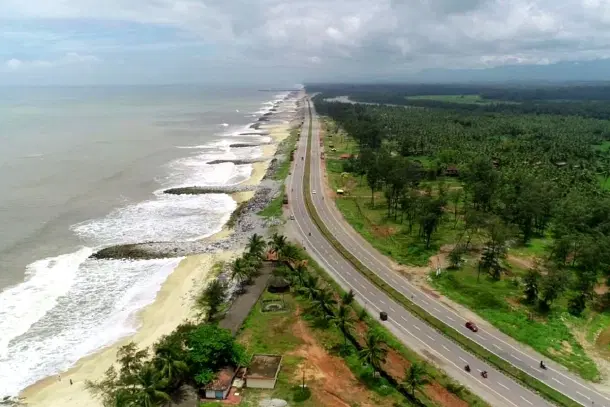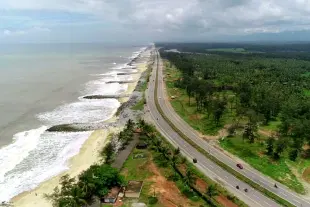News Brief
Highway Development Fuels 3.21x GDP Growth, Boosts Household Income by 9 Per Cent: IIM Bangalore Report On 2013-2023 Impact
Vansh Gupta
Jan 28, 2025, 10:13 AM | Updated 10:13 AM IST
Save & read from anywhere!
Bookmark stories for easy access on any device or the Swarajya app.


A recent preliminary report by the Indian Institute of Management, Bangalore (IIMB), highlights the transformative impact of highway development on India’s economic growth since 2013.
According to the report, accessed by The Economic Times, every unit of expenditure on highway construction has contributed to a 3.21-unit increase in Gross Domestic Product (GDP) growth, demonstrating the significant multiplier effect of infrastructure development on the nation’s economy.
Between 2013 and 2022, national highway development has led to a 9 per cent rise in household incomes, a 6 per cent growth in household expenditure, and a notable 10.4 per cent increase in car sales.
Additionally, transportation costs have reduced by 2.94 per cent between factories and suppliers and by 1.33 per cent between factories and customers, improving supply chain efficiency.
The study, conducted by the Indian Institute of Management Bangalore’s Supply Chain Management Centre (IIMB-SCMC) in collaboration with the National Highways Authority of India (NHAI), was designed to evaluate the socio-economic impact of national highway expansion during this period.
"This research study reveals a notable increase in household incomes, relative impact on household expenditure, improved access to agricultural markets, optimised employment accessibility, and the availability of job opportunities," said Jitamitra Desai, professor of operations research in the decision sciences (DS) group at IIM Bangalore, quoted as saying by The Economic Times.
“Besides, there have been notable changes in consumption behaviour, catalysing growth of micro, small, and medium enterprises (MSMEs), enhanced accessibility to schools, higher education institutions, essential healthcare services, and community services, and an attributable development in transportation accessibility,” he added.
The findings further reveal reductions in crime rates, accidents, pollution, noise levels, and traffic congestion in regions influenced by national highway development.
The conclusions are drawn from comprehensive surveys and analyses conducted across more than 100 districts, selected to represent varied socio-economic conditions.
India’s national highway network has seen a significant expansion, growing from 91,287 km in 2013-15 to 1,46,145 km in 2023-24—a 60.1 per cent increase. Simultaneously, expenditure on road infrastructure surged over fivefold, from Rs 37,588 crore in 2014-15 to Rs 2,40,427 crore in 2023-24, underscoring the government’s commitment to infrastructure growth and economic development.
Vansh Gupta is an Editorial Associate at Swarajya.





